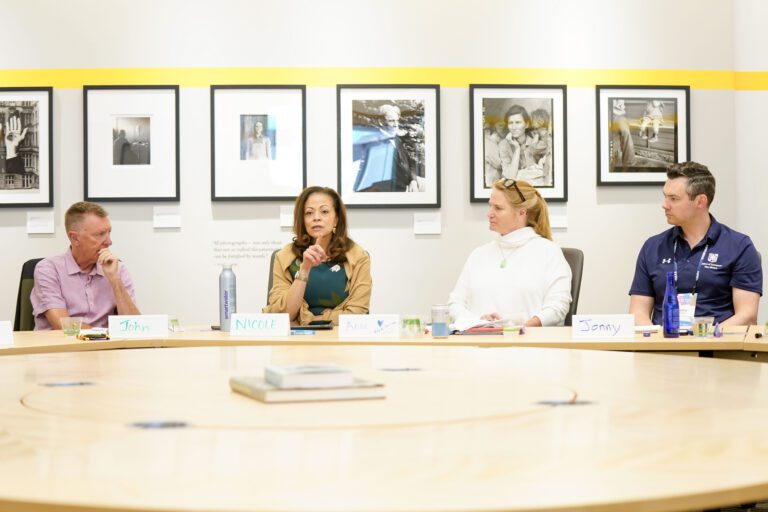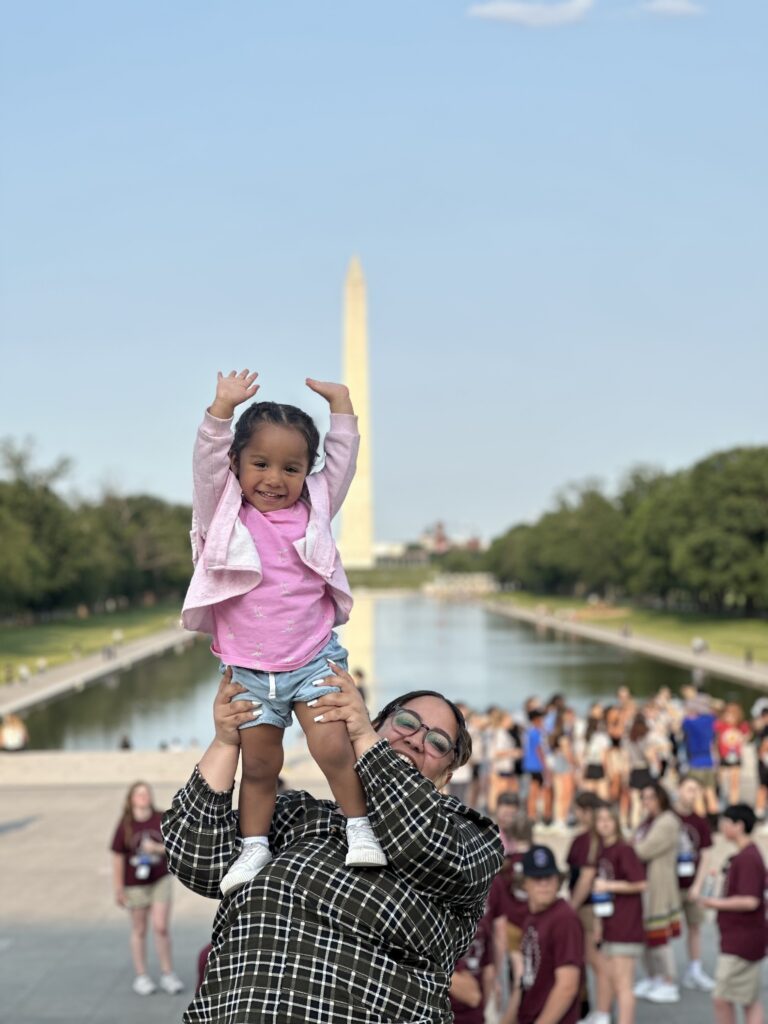You’ve Got Chocolate in My Peanut Butter!
Remember that old commercial, “You’ve got chocolate in my peanut butter! You’ve got peanut butter in my chocolate?” Put aside the unlikely ways peanut butter and chocolate “got into” each other in those 1980s ads, and the gist was clear: two great things are even better together. That’s what two-generation strategies are all about.
Recently, Ascend Fellow Steven Dow used the Reese’s example to explain why two-generation programs like CAP Tulsa’s CareerAdvance™ are not just better, but perhaps necessary to ensuring more families achieve economic security. Two-generation approaches concurrently focus on education and other supports, like asset building and nutrition, for children and their parents together, in effect “getting into” each other’s silos to reap stronger outcomes for families.
Steven Dow was speaking in the latest briefing from Ascend at the Aspen Institute’s Two-Generation Solutions series. The event marked the release of a new Aspen Institute publication, Gateways to Two Generations: The Potential for Early Childhood Programs and Partnerships to Support Children and Parents Together. Gateways documents how the early childhood side of the mix can be a critical lever for effective two-generation programs and policies. A group of thoughtful and experienced panelists delivered honest reflections, starting with the first question, “50 years after the war on poverty, what worked? What didn’t?” Briefing panelists Steven Dow, Susan Gewirtz, Joan Lombardi, and Rick Noriega had great perspectives on both public and private programs that originated during the War on Poverty era, like Head Start, Community Action Programs, and AVANCE. They also discussed how newer approaches, like the Atlanta Civic Site, are showing great promise. They gave the audience a lot of food for thought.
While Reese’s achieves more than $500 million in annual sales, nationally, effective two-generation approaches are on the rise but nowhere near mass production. From Colorado and Alaska to Mississippi and Massachusetts, states, communities and individual programs are forging new way of working together to advance family economic security. However, there are many places where effectively addressing education and support for both children and their parents together remains an elusive combination. Panelists agreed: if we’re still aiming for the goal of family economic security, our biggest barrier may be that we haven’t figured out an efficient way to deliver the supports needed to help a family, both parents and their children, get there. That’s because there are some systemic factors that can work against these approaches. In the early childhood domain, partnerships are often critical to deliver an effective two-generation approach. But different funding demands, a lack of collective vision, and other infrastructure challenges (e.g., data systems) don’t make it easy.
Ascend at the Aspen Institute, the national hub for two-generation approaches that move vulnerable children and their parents toward educational success and economic security, will continue to explore the context for creating and spreading effective two-generation programs and policies. We’ll look at best practices like those featured in the publication. And we’ll look at next practices like the work in the Rio Grande Valley mentioned by Rick Noriega, where more than 18 partners including AVANCE have joined with the school to create a continuum of efforts for children and parents.
In her closing remarks Anne Mosle, Vice President at the Aspen Institute and Executive Director of Ascend, reminded us that these great combinations are all about new pathways out of poverty for children and families. “When you talk to a parent, they want to do their best so their kids can too.” We can do no less.
Related Posts



